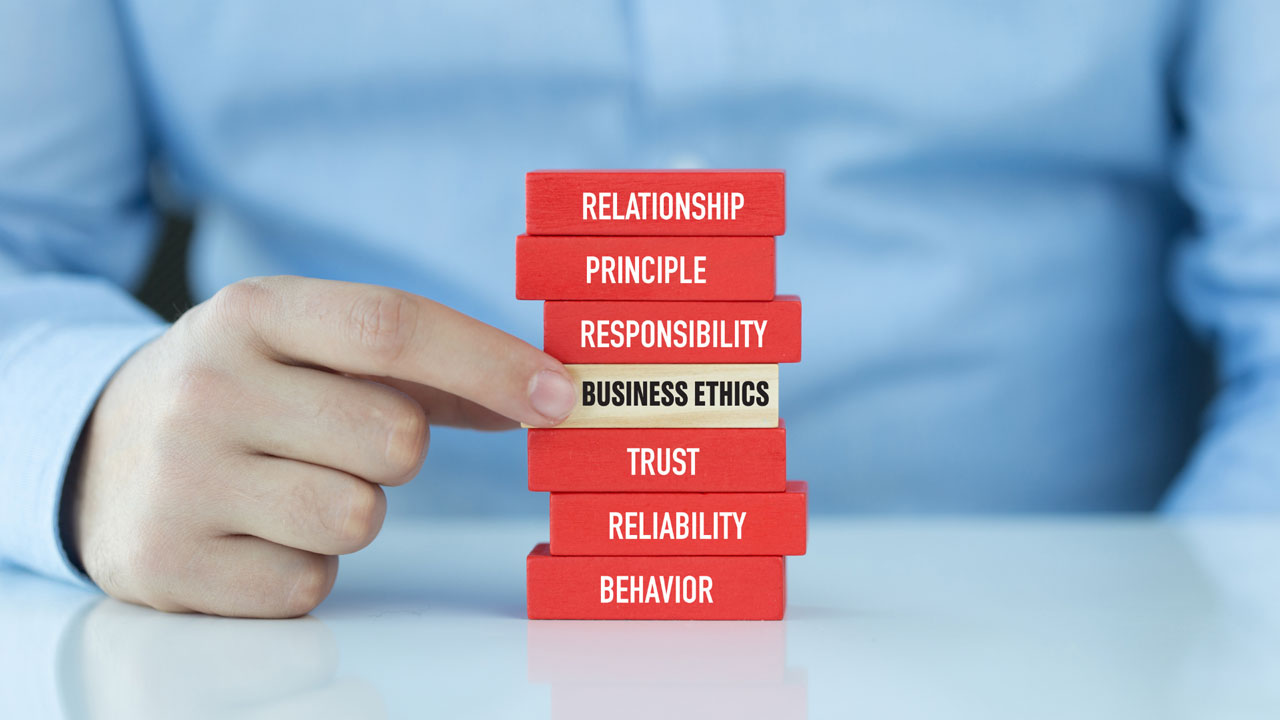When it comes to improving a company’s bottom line, people usually think it’s all about cutting costs, acquiring new customers, boosting efficiency and increasing revenue.
Of course, while all of these do play a big role in accomplishing this goal, there is another equally important factor that could make or break your business — business ethics.
What are business ethics?
Simply put, business ethics are guiding principles that direct the actions and decisions of an entire organisation. Some are decided by the members of the organisation; others are mandated by law.
They can also either be good or bad, and, as we’ve mentioned in the previous section, have a massive impact on how well — or poorly — your business performs.
What is the role of ethics in business?
The role of ethics in business is simple — they serve as the scale by which all the values, beliefs, behaviours, decisions and actions of all the members of an organisation are measured.
They encompass everything a business does and stands for, including:
- How it treats its customers
- How it manages its cashflow
- How it treats its employees and suppliers
- The systems and processes it has in place
Without them, it would be challenging for companies, especially those with larger operations or multiple subsidiaries, to function as a single unit. This, in turn, results in them handling the different aspects of their business differently — creating varied or disconnected experiences for their customers, employees, suppliers, investors and partners.
Is there a connection between business ethics and maximising firm value?
While it might not be immediately apparent, there is a strong connection between business ethics and maximising firm value.
A company known for having good business ethics is simply more attractive to investors or potential buyers than one without. This is primarily because an ethical business is generally more profitable and easier to grow, thanks to its freedom from issues like:
- Legal or regulatory trouble
- Unhappy customers
- Disgruntled, underperforming employees
- Angry suppliers
- Inefficient systems and processes
What are the downsides to having bad business ethics?
The primary downside to having bad business ethics is it makes your company less attractive not only to investors and potential buyers of your business, but also to customers and everyone else you do business with. This, in turn, severely limits your ability to make money and grow, which ultimately cuts your chances of seeing long-term success.
In addition, bad business ethics also exposes you to the risk of having to deal with all sorts of legal trouble and the fines and costs that typically come with it.
But the problems don’t stop there. Since the primary role of ethics in business is guiding everything everyone in the organisation does, having unethical employees on your team, regardless of their role, exposes you to issues such as:
- Theft
- Inefficiency
- Poor customer service
- Low-quality output
- High employee turnover
How can I ensure my firm has good business ethics?
To ensure your firm has good business ethics and is in the perfect position to maximise its value, you need to:
- Have a clear code of ethics in place
- Provide business ethics training to your employees
- Make sure your organisation’s leadership always sets a good example
- Develop a way to keep track of and measure your organisation’s ethical performance
Maximise your firm’s value today through good business ethics
You’ve seen how big the role of ethics in business truly is and how strong the connection is between business ethics and maximising firm value. The only thing left to do now is take action.
Let one of our expert virtual CFOs help you get started so you can start improving the value of your firm today. From strategic planning to business exit strategy preparation, we’ll not only make sure your finances and financial systems and processes are all in order, but also help you drive growth, profit and cash flow for your business. Contact us today!




